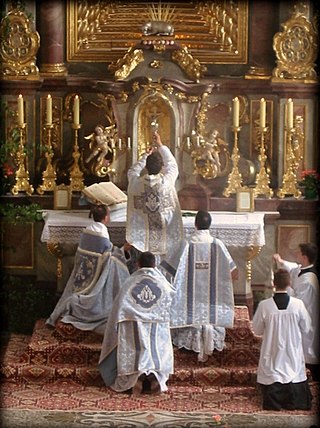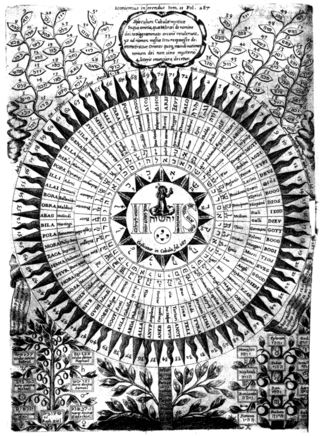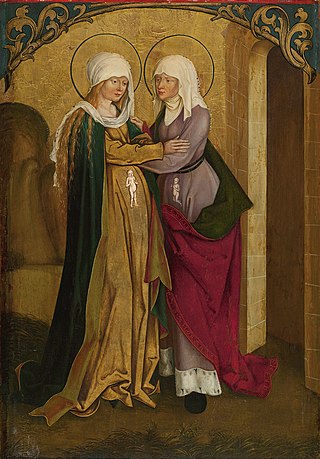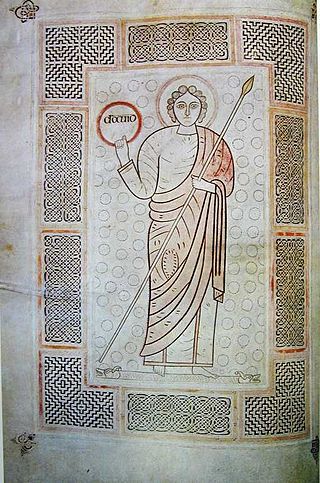Alexander M. Schweitzer (born 7 April 1964 in Frankfurt am Main) is a German theologian and musician.
From 1984 to 1992 Schweitzer studied philosophy, Catholic theology and church music in Rome, Cremona and Munich. After years of activity in biblical pastoral ministry, from 2001 to 2011 Schweitzer served as General Secretary of the Catholic Biblical Federation. In 2008 Pope Benedict XVI appointed him expert for the Synod of Bishops on the Word of God.
Since 2011, Schweitzer has been Director of Global Bible Translation and responsible for inter-confessional cooperation at United Bible Societies. Since 2017, in addition, he has been serving as executive director for Global Bible Ministry in the same organisation.
As a church musician, Schweitzer specialises in Gregorian chant. He works with numerous ensembles worldwide, and since 1998 he has been directing Consortium Vocale Oslo, with whom he has recorded seven CDs. He is a member of international juries and has been granted several awards.
Schweitzer teaches Gregorian Semiology in the "Master of Advanced Studies" program at the Music University of Italian-speaking Switzerland, Lugano and he is a lecturer at the International AISCGre courses.
In September 2015, Schweitzer was elected president of the International Society for the Study of Gregorian Chant "AISCGre" (Associazione Internazionale Studi di Canto Gregoriano) the main scope of which is the research and interpretation of Gregorian compositions on the basis of the findings of the early musical manuscripts. The society has approximately 500 members in 30 countries.
CDs Gregorian Chant (with Consortium Vocale Oslo)

Easter, also called Pascha or Resurrection Sunday, is a Christian festival and cultural holiday commemorating the resurrection of Jesus from the dead, described in the New Testament as having occurred on the third day of his burial following his crucifixion by the Romans at Calvary c. 30 AD. It is the culmination of the Passion of Jesus Christ, preceded by Lent, a 40-day period of fasting, prayer, and penance.

Good Friday is a Christian holiday commemorating the crucifixion of Jesus and his death at Calvary. It is observed during Holy Week as part of the Paschal Triduum. It is also known as Holy Friday, Great Friday, Great and Holy Friday, and Black Friday.
The Olivet Discourse or Olivet prophecy is a biblical passage found in the Synoptic Gospels in Matthew 24 and 25, Mark 13, and Luke 21. It is also known as the Little Apocalypse because it includes the use of apocalyptic language, and it includes Jesus' warning to his followers that they will suffer tribulation and persecution before the ultimate triumph of the Kingdom of God. The Olivet discourse is the last of the Five Discourses of Matthew and occurs just before the narrative of Jesus' passion beginning with the anointing of Jesus.

The Tridentine Mass, also known as the Traditional Latin Mass or the Traditional Rite, is the liturgy in the Roman Missal of the Catholic Church published from 1570 to 1962. Celebrated almost exclusively in Ecclesiastical Latin, it was the most widely used Eucharistic liturgy in the world from its issuance in 1570 until the introduction of the Mass of Paul VI.

Vespro della Beata Vergine, SV 206, is a musical setting by Claudio Monteverdi of the evening vespers on Marian feasts, scored for soloists, choirs, and orchestra. It is an ambitious work in scope and in its variety of style and scoring, and has a duration of around 90 minutes. Published in Venice as Sanctissimae Virgini Missa senis vocibus ac Vesperae pluribus decantandae, cum nonnullis sacris concentibus, ad Sacella sive Principum Cubicula accommodata, it is sometimes called Monteverdi's Vespers of 1610.

There are various names of God, many of which enumerate the various qualities of a Supreme Being. The English word god is used by multiple religions as a noun to refer to different deities, or specifically to the Supreme Being, as denoted in English by the capitalized and uncapitalized terms God and god. Ancient cognate equivalents for the biblical Hebrew Elohim, one of the most common names of God in the Bible, include proto-Semitic El, biblical Aramaic Elah, and Arabic ilah. The personal or proper name for God in many of these languages may either be distinguished from such attributes, or homonymic. For example, in Judaism the tetragrammaton is sometimes related to the ancient Hebrew ehyeh. It is connected to the passage in Exodus 3:14 in which God gives his name as אֶהְיֶה אֲשֶׁר אֶהְיֶה, where the verb, translated most basically as "I am that I am" or "I shall be what I shall be", "I shall be what I am" In the Hebrew Bible, YHWH, the personal name of God, is revealed directly to Moses. Correlation between various theories and interpretation of the name of "the one God", used to signify a monotheistic or ultimate Supreme Being from which all other divine attributes derive, has been a subject of ecumenical discourse between Eastern and Western scholars for over two centuries. In Christian theology the word is considered a personal and a proper name of God. On the other hand, the names of God in a different tradition are sometimes referred to by symbols. The question whether divine names used by different religions are equivalent has been raised and analyzed.
The Johannine Comma is an interpolated phrase (comma) in verses 5:7–8 of the First Epistle of John.
The purpose of this timeline is to give a detailed account of Christianity from the beginning of the current era (AD) to the present. Question marks ('?') on dates indicate approximate dates.
Ivan Moody is a British composer and musicologist.

Jesus, also referred to as Jesus Christ, Jesus of Nazareth, and several other names and titles, was a first-century Jewish preacher and religious leader. He is the central figure of Christianity, the world's largest religion. Most Christians believe Jesus to be the incarnation of God the Son and the awaited messiah, the Christ that is prophesied in the Hebrew Bible.
The history of the Catholic Church is integral to the history of Christianity as a whole. It is also, according to church historian Mark A. Noll, the "world's oldest continuously functioning international institution." This article covers a period of just under two thousand years.

Hubertus Gerardus Josephus Henricus "Huub" Oosterhuis was a Dutch theologian and poet. He is mainly known for his contribution to Christian music and liturgy in Dutch and also in German, used in both Protestant and Roman Catholic churches. He authored over 60 books and over 700 hymns, songs, psalms, and prayers. Several of his songs were translated, and he received international awards and recognition.
The Methodist Church of Great Britain is a Protestant Christian denomination in Britain, and the mother church to Methodists worldwide. It participates in the World Methodist Council, and the World Council of Churches among other ecumenical associations.

In 1724 Johann Sebastian Bach composed the church cantata Meine Seel erhebt den Herren, BWV 10, as part of his second cantata cycle. Taken from Martin Luther's German translation of the Magnificat canticle, the title translates as "My soul magnifies the Lord". Also known as Bach's German Magnificat, the work follows his chorale cantata format.

Solemn Mass is the full ceremonial form of a Mass, predominantly associated with the Tridentine Mass where it is celebrated by a priest with a deacon and a subdeacon, requiring most of the parts of the Mass to be sung, and the use of incense. It is also called High Mass or Solemn High Mass.

The term Evangelical Catholic is used in Lutheranism, alongside the term Augsburg Catholic, with those calling themselves Evangelical Catholic Lutherans or Lutherans of Evangelical Catholic churchmanship stressing the catholicity of historic Lutheranism in liturgy, beliefs, practices, and doctrines. Evangelical Catholics teach that Lutheranism at its core "is deeply and fundamentally catholic". The majority of Evangelical Catholic Lutheran clergy and parishes are members of mainstream Lutheran denominations.

Carlo Maria Martini was an Italian Jesuit, cardinal of the Catholic Church and a Biblical scholar. He was Archbishop of Milan from 1980 to 2004 and was elevated to the cardinalate in 1983. A towering intellectual figure of the Roman Catholic Church, Martini was the liberal contender for the Papacy in the 2005 conclave, following the death of Pope John Paul II. According to highly placed Vatican sources, Martini received more votes in the first round than Cardinal Joseph Ratzinger, the conservative candidate: 40 to 38. Ratzinger ended up with more votes in subsequent rounds and was elected Pope Benedict XVI.

Psalm 100 is the 100th psalm in the Book of Psalms in the Hebrew Bible. In English, it is translated as "Make a joyful noise unto the Lord, all ye lands" in the King James Version (KJV), and as "O be joyful in the Lord, all ye lands" in the Book of Common Prayer (BCP). Its Hebrew name is מִזְמוֹר לְתוֹדָה, 'Mizmor l'Todah' and it is subtitled a "Psalm of gratitude confession". In the slightly different numbering system in the Greek Septuagint version of the Bible, and in the Latin Vulgate, this psalm is Psalm 99. In the Vulgate, it begins Jubilate Deo, or Jubilate, which also became the title of the BCP version.

The Tetragrammaton, or the Tetragram, is the four-letter Hebrew theonym יהוה, the name of God in the Hebrew Bible. The four letters, written and read from right to left, are yodh, he, waw, and he. The name may be derived from a verb that means "to be", "to exist", "to cause to become", or "to come to pass". While there is no consensus about the structure and etymology of the name, the form Yahweh is now accepted almost universally, though the vocalization Jehovah continues to have wide usage.

Criticism of Protestantism covers critiques and questions raised about Protestantism, the Christian denominations which arose out of the Protestant Reformation. While critics may praise some aspects of Protestantism which are not unique to the various forms of Protestantism, Protestantism is faced with criticism mainly from the Catholic Church and the Eastern Orthodox Church, although Protestant denominations have also engaged in self-critique and criticized one another. According to both the Catholic Church and Eastern Orthodoxy, many major, foundational Protestant doctrines have been officially declared heretical.